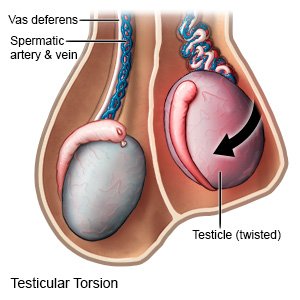Optimizing Content for Search Rankings: Testicles
Welcome to our comprehensive guide on testicles. In this article, we will provide you with detailed and accurate information about testicles, their functions, common issues, and how to maintain their health. Our goal is to surpass the current top-ranking article on this topic by delivering high-quality content optimized for search rankings.
Understanding Testicles
Testicles, also known as testes, are the male reproductive organs responsible for producing sperm and testosterone. They are oval-shaped glands located within the scrotum, a sac of skin situated behind the penis. The testicles play a crucial role in the male reproductive system and are essential for fertility and hormone production.
Functions of Testicles
Sperm Production: Testicles are responsible for producing and storing sperm, the male reproductive cells necessary for fertilization.
Testosterone Production: Testicles are the primary source of testosterone, the male sex hormone. Testosterone is vital for the development of male reproductive tissues, muscle mass, bone density, and the maintenance of overall sexual health.
Common Testicle Issues
Testicular Cancer: Testicular cancer is a relatively rare but potentially serious condition that affects the testicles. It is essential to be aware of the signs and symptoms, such as a lump, swelling, or pain in the testicles, and seek medical attention if any abnormalities are noticed.
Testicular Torsion: Testicular torsion occurs when the testicle twists within the scrotum, cutting off its blood supply. This condition requires immediate medical intervention to prevent permanent damage to the testicle.
Epididymitis: Epididymitis is the inflammation of the epididymis, a coiled tube located behind the testicles. It can be caused by infections or other factors and may result in testicular pain and swelling.
Maintaining Testicular Health
Maintaining the health of your testicles is crucial for overall well-being. Here are some tips to promote testicular health:
Regular Self-Examinations: Perform monthly self-examinations to check for any abnormalities, such as lumps or changes in size or shape. If you notice anything unusual, consult a healthcare professional.
Wear Protective Gear: When engaging in sports or activities that may pose a risk of testicular injury, wear appropriate protective gear, such as a jockstrap or athletic cup.
Practice Safe Sex: Protect yourself from sexually transmitted infections (STIs) by practicing safe sex. Use condoms and consider regular STI testing.

In conclusion, understanding testicles and their functions is essential for maintaining overall male reproductive health. By following the tips provided in this article and staying aware of any potential issues, you can take proactive steps to ensure the well-being of your testicles. Remember, if you have any concerns or notice any abnormalities, always consult a healthcare professional for proper evaluation and guidance.
Frequently Asked Questions about Testicles
1. What are testicles?
Testicles, also known as testes, are the male reproductive organs responsible for producing sperm and testosterone.
2. Where are the testicles located?
Testicles are located in the scrotum, the loose pouch of skin hanging behind the penis.
3. What is the function of testicles?
The primary function of testicles is to produce sperm and hormones, particularly testosterone, which is essential for male sexual development and characteristics.
4. Can testicles be injured?
Yes, testicles can be injured through trauma or accidents. It is important to protect the testicles from injury, as severe damage may affect fertility.
5. What is testicular cancer?
Testicular cancer is a type of cancer that develops in the testicles. It is relatively rare but highly treatable, especially when detected early.
6. How can I perform a testicular self-examination?
To perform a testicular self-examination, gently roll each testicle between your thumb and fingers, feeling for any lumps, swelling, or changes in size. It is recommended to do this monthly to detect any abnormalities.
7. Can testicles shrink with age?
As men age, it is common for testicles to gradually shrink in size. This is a natural part of the aging process and is usually not a cause for concern.
8. Are testicles sensitive to touch?
Yes, testicles are sensitive to touch. They have a high concentration of nerve endings, which can make them sensitive to pain or discomfort if injured or squeezed too hard.
9. Can testicles be affected by certain medical conditions?
Yes, various medical conditions can affect the testicles, such as testicular torsion, epididymitis, varicocele, and orchitis. It is important to seek medical attention if you experience any symptoms or concerns.
10. Can testicles be prosthetic?
Yes, prosthetic testicles can be used to replace missing or removed testicles. These prosthetics are typically made from silicone and are surgically implanted to restore the appearance of the scrotum.




